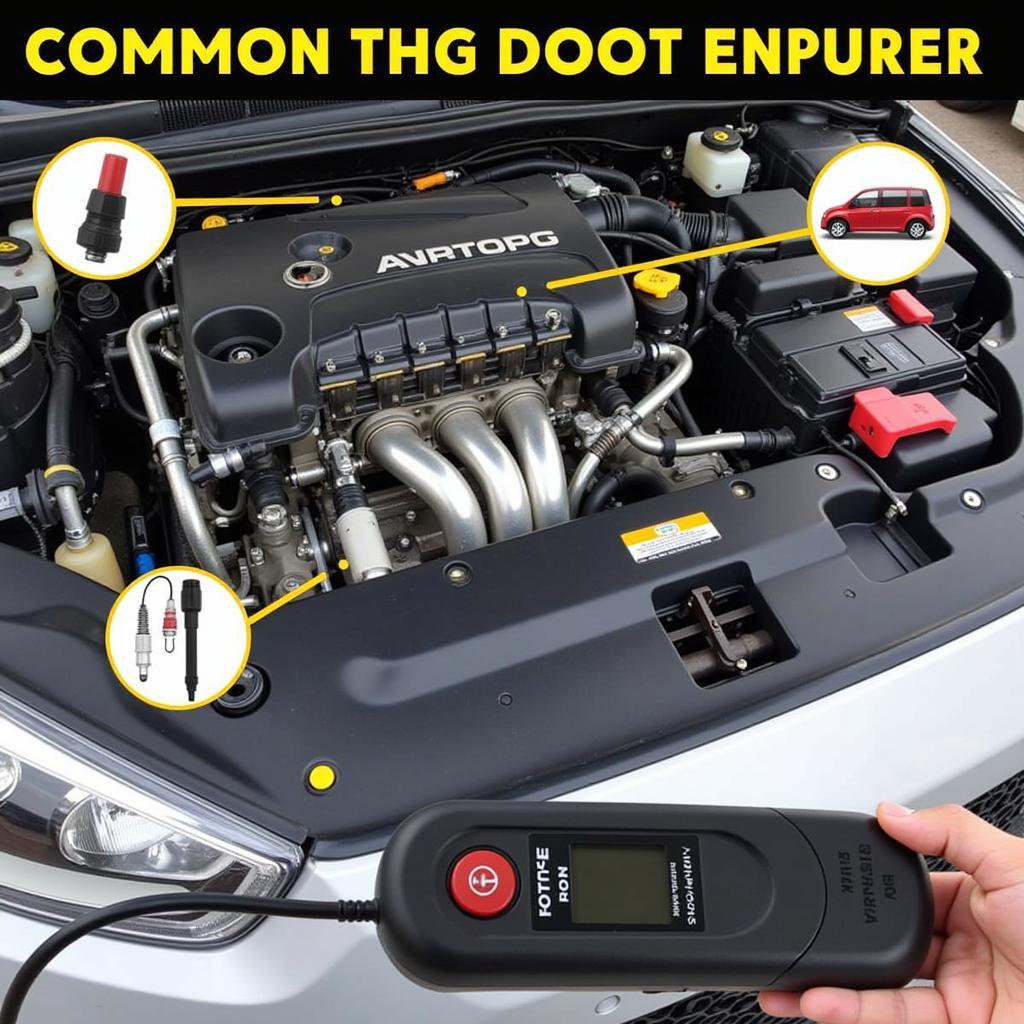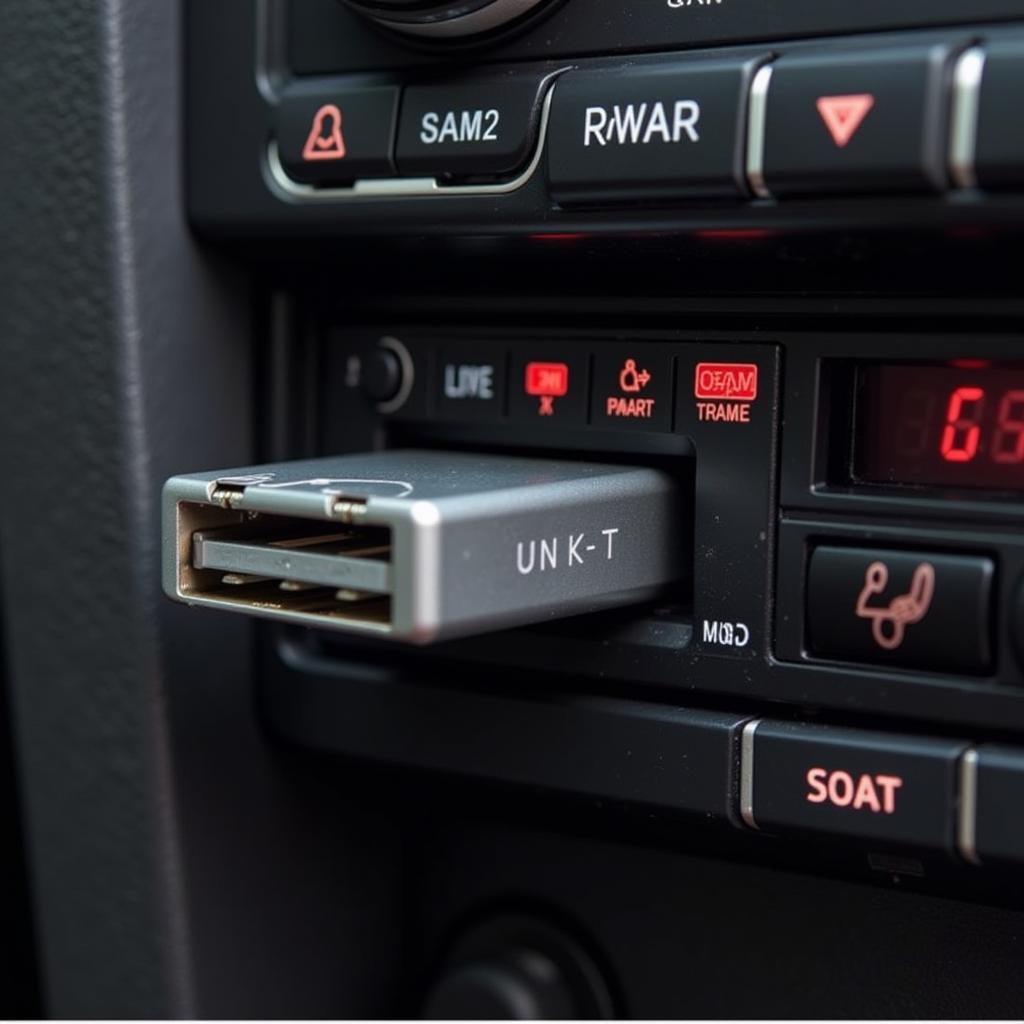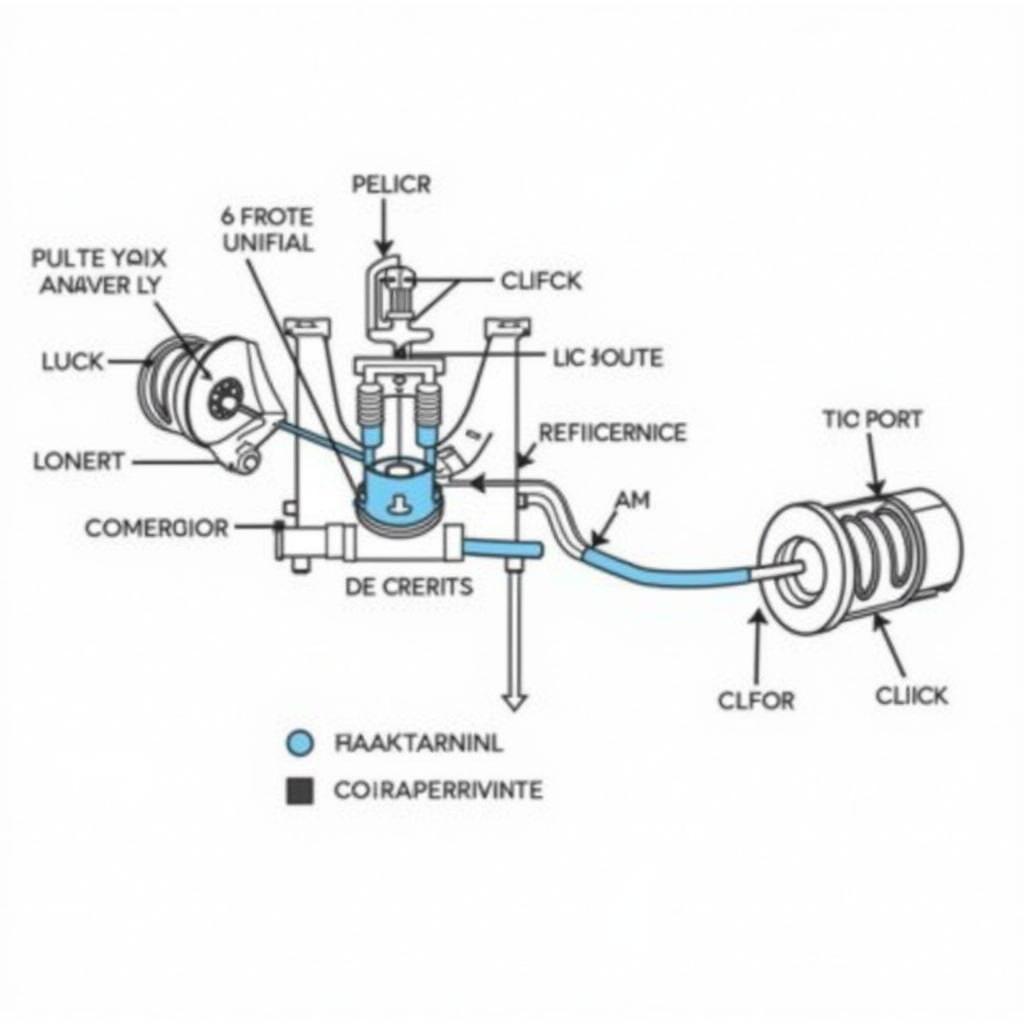A faulty speedometer can be a major inconvenience for any car owner, and can even lead to serious safety hazards. While some problems are fairly simple to diagnose and fix, others can be quite complex. This guide will provide you with step-by-step instructions on how to troubleshoot and repair your car’s speedometer, covering both common issues and advanced solutions.
Common Speedometer Problems and Their Causes
Before diving into the repair process, it’s important to understand the common problems that can affect your speedometer:
- Erratic Readings: This can be caused by a faulty sensor, a wiring issue, or a problem with the speedometer itself.
- Stuck Needle: A stuck needle can be caused by a mechanical issue within the speedometer, or by a problem with the sensor sending incorrect signals.
- Zeroed Out Reading: A zeroed out reading often signifies a malfunctioning sensor or a broken connection.
- Constant Speed Reading: This could be caused by a faulty speed sensor or a problem with the electronic control unit (ECU).
Basic Troubleshooting Steps:
-
Check the Fuse: A blown fuse can cause a complete loss of speedometer function. Consult your owner’s manual to locate the speedometer fuse and check its condition. If it’s blown, replace it with a new one of the same amperage.
-
Inspect the Speed Sensor: The speed sensor is located on the transmission or rear differential and measures the rotation of the wheels. It’s a small, cylindrical device with a wire running to it. Check for any visible damage or loose connections. If the sensor is damaged or the wiring is loose, replace it with a new one.
-
Test the Wiring: Examine the wiring running from the speed sensor to the speedometer for any breaks, cuts, or corrosion. You can use a multimeter to check for continuity in the wiring. If any problems are found, repair or replace the wiring.
More Advanced Troubleshooting and Repair:
-
Check the ECU: The ECU receives signals from the speed sensor and other sensors and processes them to display information on the instrument cluster, including the speedometer. If the ECU is faulty, it can lead to inaccurate readings or even complete failure of the speedometer. A diagnostic scan tool can be used to check for error codes related to the ECU.
-
Inspect the Instrument Cluster: The instrument cluster is the physical unit that displays the speedometer reading. Inspect the cluster for any loose connections or damage. If there’s damage to the cluster, you may need to repair or replace it.
-
Inspect the Speedometer Cable: Older vehicles use a mechanical cable to connect the speedometer to the speed sensor. If the cable is broken, stretched, or stuck, it can cause inaccurate readings or a stuck needle.
DIY Repair vs. Professional Assistance:
While some basic repairs can be done by a competent DIY enthusiast, more complex issues like ECU problems or instrument cluster repairs often require professional assistance. If you’re unsure about the cause of the speedometer problem or if you’re not comfortable working on your car’s electrical system, it’s best to take it to a qualified mechanic.
“It’s important to remember that a malfunctioning speedometer can be a safety hazard, so it’s best to address any problems as soon as possible. If you’re not comfortable working on your car’s electrical system, it’s always best to consult a professional.” – John Smith, Master Auto Technician
How to Fix a Car Speedometer: A Summary
Fixing a car speedometer can be a straightforward process, but it’s important to diagnose the problem accurately before attempting any repairs.
- Start with basic troubleshooting: Check the fuse, inspect the speed sensor, and examine the wiring.
- If the problem persists, consider more advanced solutions: Test the ECU, inspect the instrument cluster, and check the speedometer cable.
- Remember, safety is paramount: If you’re not comfortable working on your car’s electrical system, consult a qualified mechanic.
fix my car brakes near me, fix my car lite walkthrough, how to fix car leak, fixing a car that won’t start, guy fixing a car
FAQ
Q: How much does it cost to fix a speedometer?
A: The cost of fixing a speedometer can vary greatly depending on the cause of the problem and the complexity of the repair.
Q: Can I fix my speedometer myself?
A: Some basic repairs, like replacing a fuse or speed sensor, can be done by DIY enthusiasts. But if the problem is more complex, it’s best to consult a professional.
Q: What happens if I ignore a faulty speedometer?
A: A faulty speedometer can make it difficult or impossible to determine your speed, which can be a safety hazard. It can also lead to other problems, such as trouble with the cruise control or the odometer.
Q: How do I know if my speedometer is accurate?
A: You can test the accuracy of your speedometer by driving at a known speed, such as on a highway, and comparing your speedometer reading to the speed limit signs.
Q: My speedometer is working but is very inaccurate, what can I do?
A: Inaccurate readings can be caused by several factors, such as a worn-out speed sensor, a problem with the ECU, or a damaged speedometer cable. It’s best to consult a mechanic to diagnose the problem and recommend a solution.
We hope this guide helps you understand the potential issues with your car’s speedometer, and how to troubleshoot and fix them. For more information about car maintenance and repairs, contact AutoTipPro at +1 (641) 206-8880 or visit us at 500 N St Mary’s St, San Antonio, TX 78205, United States.







Leave a Reply